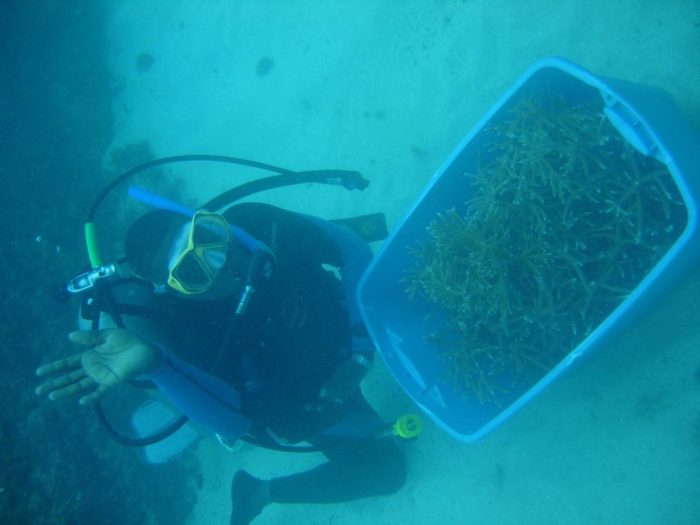*Originally published in the Branson Centre’s B:Inspired eZine Issue 4.
When you consider the phrase “environmental rehabilitation and restoration” or “social entrepreneur” you may automatically think of treehuggers, people who work for a cause and are not motivated by money.
You would be wrong. Well, partially wrong.
Restoring damaged sections of our ecological landscape is an engineering problem, as well as a environmental one. Engineers cost big bucks. Our environmental scientists, who offer similar value, should be rewarded commensurate with that value.
Instead, historically, they have had to turn to multilateral agencies as sources of funding for their projects. The major benefit of using donor funding is that, unlike a loan, the money does not have to be repaid. Some funds have money earmarked for social or environmental causes, which helps to reduce competition, and
Andrew Ross (Cohort 1), Director of Seascape Caribbean – an ecosystem restoration and development company – has been successful in attracting multilateral funding to finance coral reef restoration projects. However, he is moving away from a grant-based model to developing profitable revenue streams that create value for private companies.
The grant process begins with proposal writing in response to a Call for Proposals from the funding agency. Depending on the level of detail required, this stage can take anywhere from two weeks to two months. If successful, the proposal is approved 3 to 6 months later with mobilization payment and the start of work. The money is disbursed over the course of the project according to milestones laid out in the proposal by the proposal writers. Project reports may be required at set intervals and can range from short write-ups with a few photographs, to published documents.
Andrew has typically gone after smaller grants (less than US$50,000) due to much shorter turnaround times of 3 to 6 months, compared to larger grants that can take up to three years to develop and mobilize.
His biggest concern is that donor funding is project-based rather than goal-based.
Now, Andrew is pushing towards profitable revenue streams rather than seeking out donor funding. Hotels in Jamaica face a significant beach erosion problem. Excessive wave energy comes to shore due to coral reef degradation. Andrew proposes that the chronic costs associated with beach repairs can be avoided. Through a patented technology, Seascape Caribbean regenerates coral on the reef in order to reduce coastal damage. Hotels also benefit from green branding and additional revenue from having beautiful reefs that facilitate snorkeling, diving and other related activities.
“I went private on purpose. What I want to achieve in the long term is better served by attracting private clients because I am able to work from a value basis rather than according to a project timeline. A hotel is working on a 5-20 year timeline, compared to a project with a one-year timeline.”
“We are trying to extend the concept of landscaping into the sea and beyond the shore. Yes, it results in a sensible aesthetic and returns on tourism goals, but for me it’s more about conservation and the restoration of ecosystems.”
